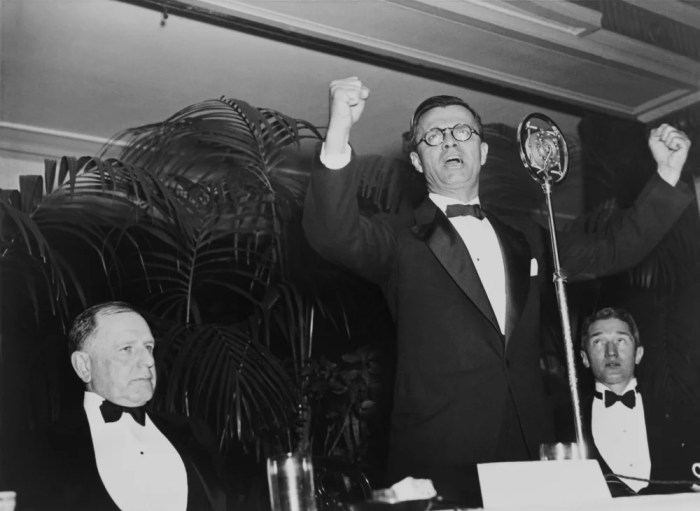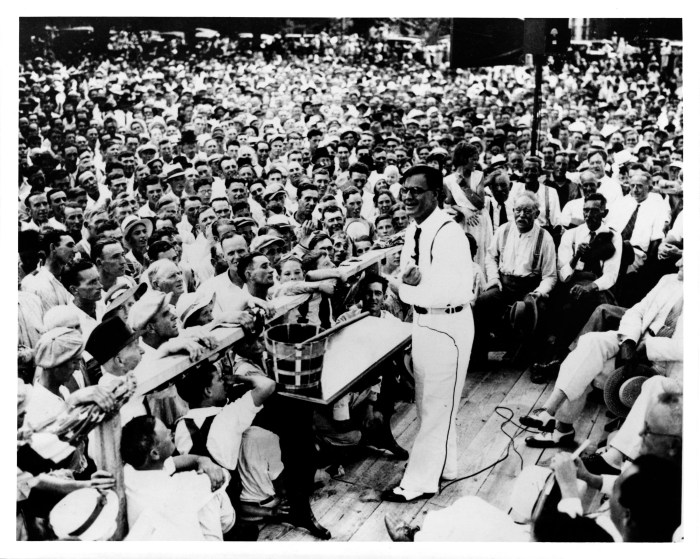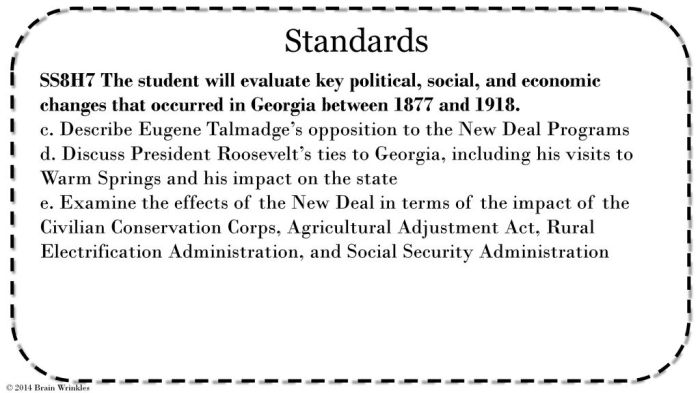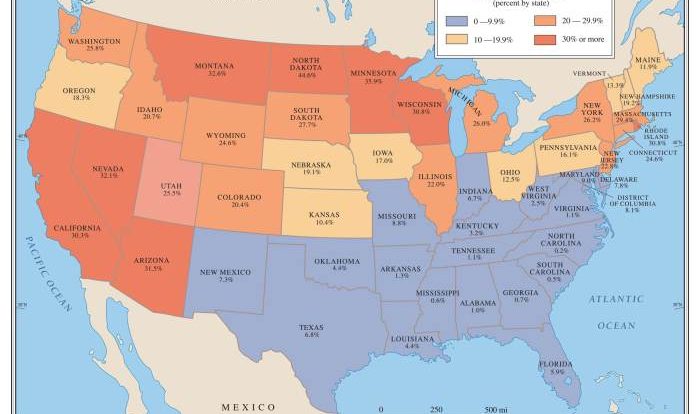Eugene talmadge opposition to the new deal – Eugene Talmadge’s opposition to the New Deal stands as a pivotal moment in American history, showcasing the complex interplay between populism, politics, and social change. As one of the most vocal critics of President Franklin D. Roosevelt’s policies, Talmadge harnessed populist rhetoric to mobilize a substantial following, shaping the political landscape of Georgia and beyond.
Talmadge’s opposition stemmed from a deep-seated belief in states’ rights and limited government intervention. He argued that the New Deal’s programs encroached upon individual liberty and undermined traditional values. Through fiery speeches and a calculated political strategy, Talmadge rallied supporters who shared his concerns about the expansion of federal power.
Eugene Talmadge’s Political Career
Eugene Talmadge was a prominent American politician who served as the 70th and 72nd Governor of Georgia. His political career spanned over three decades, and he was known for his populist rhetoric and staunch opposition to the New Deal. Talmadge’s political views were shaped by his rural upbringing and his belief in states’ rights.
Factors Shaping Talmadge’s Political Views
- Rural upbringing and strong connection to farmers and rural communities
- Belief in limited government and states’ rights
- Opposition to federal intervention in local affairs
- Support for white supremacy and segregation
Talmadge’s Opposition to the New Deal

Talmadge was a staunch opponent of President Franklin D. Roosevelt’s New Deal policies. He argued that these policies were unconstitutional, wasteful, and would lead to the federal government gaining too much power. Talmadge criticized specific New Deal programs, such as the Agricultural Adjustment Act, the National Recovery Administration, and the Works Progress Administration.
Impact of Talmadge’s Opposition, Eugene talmadge opposition to the new deal
- Slowed down the implementation of New Deal programs in Georgia
- Mobilized opposition to the New Deal in the South
- Contributed to the rise of conservative sentiment in the region
Talmadge’s Use of Populist Rhetoric: Eugene Talmadge Opposition To The New Deal

Talmadge employed populist rhetoric to gain support for his anti-New Deal stance. He appealed to the fears and prejudices of rural white voters by portraying the New Deal as a threat to their way of life. Talmadge used language that was simple and easy to understand, and he often invoked religious imagery to connect with his audience.
Key Themes and Messages
- Government overreach and tyranny
- Defense of states’ rights and local autonomy
- Preservation of traditional values and white supremacy
Talmadge’s Allies and Opponents

Talmadge’s opposition to the New Deal was supported by a coalition of conservative Democrats, white supremacists, and rural voters. His opponents included New Deal supporters, African Americans, and labor unions.
Role of Race and Class
- Talmadge’s support base was primarily among poor and working-class whites
- His opposition to the New Deal appealed to white supremacists who feared racial equality
- African Americans and labor unions strongly opposed Talmadge’s policies
Talmadge’s Legacy
Talmadge’s legacy is complex and controversial. He is remembered as a staunch defender of states’ rights and white supremacy, but he also implemented some progressive policies during his time as governor. Talmadge’s opposition to the New Deal had a lasting impact on Georgia and the South, contributing to the region’s conservative political climate.
Positive Contributions
- Improved rural infrastructure and education
- Supported public health initiatives
- Protected states’ rights from federal encroachment
Negative Impacts
- Perpetuated racial segregation and inequality
- Obstructed economic recovery during the Great Depression
- Contributed to the rise of conservative politics in the South
Common Queries
What were the main reasons for Talmadge’s opposition to the New Deal?
Talmadge opposed the New Deal’s expansion of federal power, arguing that it infringed upon states’ rights and individual liberty.
How did Talmadge mobilize support for his anti-New Deal stance?
Talmadge employed populist rhetoric, appealing to voters’ economic anxieties and fears about the erosion of traditional values.
What was the impact of Talmadge’s opposition on the implementation of the New Deal in Georgia?
Talmadge’s resistance hindered the full implementation of New Deal programs in Georgia, leading to slower economic recovery and less access to federal aid.
